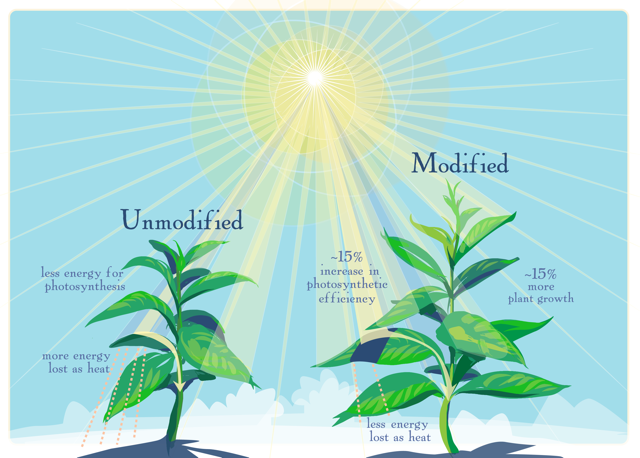
Pioneering research that seeks to boost the photosynthetic efficiency of crops has received a significant funding boost from the Bill & Melinda Gates Foundation.
The project, known as Realizing Increased Photosynthetic Efficiency (RIPE), is seeking to improve crop yields by using the tools of biotechnology to speed up the process of photosynthesis. The first field trials of these transgenic crops showed productivity increases ranging from 14 to 30 percent, with more recent advances proven to increase yields by 20 percent.
The public sector RIPE research, based at the University of Illinois, is aimed at advanced sustainable agriculture in developing countries. It is focused primarily on staple food crops, such as rice, cassava and cowpea.
We’re working on solutions today to help ensure our food security in 30 years,” said RIPE Deputy Director Donald Ort, USDA/ARS Photosynthesis Research Unit and Robert Emerson Professor in Plant Biology and Crop Sciences at the University of Illinois. “We have validated mechanisms in model crops to increase yield by improving photosynthesis. Now it is urgent that we must move these traits into the target food crops.
Added research leader Stephen Long: “Having an impact on farmers, particularly in the poorest parts of the world, is very important to myself and my group. We’ve devoted quite a chunk of our lives to this, in the hope that this is going to provide germplasm seed that farmers in these countries can really benefit from.”
Long discusses his work in more detail on this video.
As Long and his co-authors, Amanda P. De Souza and Lynnicia Massenburg, reported in an article on TheConversation.com:
Hacking photosynthesis has long been considered to be a holy grail of plant biology. Photosynthesis is the process in which green plants use the energy of sunlight to synthesize food from carbon dioxide and water, fueling their growth. It is directly or indirectly the source of all of our food, as well as many of our fibers and most of our fuel. By simulating the process on supercomputers, we identified points where we might intervene to speed up the process.
The research has attracted the attention of philanthropic organizations like the Bill & Melinda Gates Foudation, which is working to reduce poverty and improve nutrition in developing nations by helping small-holder farmers access better seeds and other agricultural innovations.
A press release announcing the Foundation’s re-investment in RIPE spoke to the urgency of the research:
Scientists predict that we are just one crop breeding cycle from starvation: the world population increases each day while crop yields remain largely stagnant, and any advancements made today will take as long as 20 years to reach farmers fields.
Additional funding for the RIPE project comes from the Foundation for Food and Agriculture Research, and the U.K. Department for International Development.
